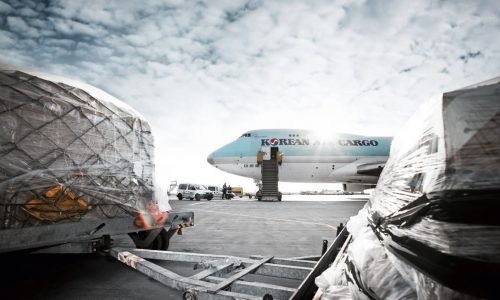DSV Global Transport and Logistics has become Etihad Cargo ‘s first partner to purchase sustainable aviation fuel (SAF).
Via the book and claim system, Etihad Cargo facilitated DSV’s SAF purchase, enabling the transport and logistics provider to offset CO2 emissions and reduce non-CO2 climate impact.
Etihad Cargo transported DSV’s cargo shipment from Washington Dulles to Abu Dhabi on Etihad’s first transatlantic NetZero flight on 13 November.
Etihad’s Boeing 787 Greenliner combined SAF with contrail prevention technology from its partner, SATAVIA, to actively manage carbon emissions and non-CO2 climate effects from contrails, or condensation trails, which cause surface warming and are responsible for up to two-thirds of aviation’s climate impact.
Martin Drew, Senior Vice President – Global Sales & Cargo at Etihad Aviation Group, said: “Etihad was recently named the Environmental Airline of the Year, and Etihad Cargo is committed to providing solutions that enable its partners and customers to achieve their sustainability ambitions.
“Etihad Cargo is witnessing more focus on sustainable air cargo from customers who are seeking to establish partnerships that provide SAF utilisation, carbon offset initiatives and management of non-CO2 climate impact.
Etihad Cargo’s partnership with DSV to transport cargo utilising the SAF book and claim system has showcased the power of collaboration and demonstrated the future of net-zero aviation. The successful delivery of DSV’s shipment has proved net-zero air cargo operations are possible and is the first step in transforming the possible into the routine.”
Offering partners and customers the option to transport cargo more sustainably via the SAF book and claim system is the latest step in Etihad Cargo’s sustainability journey.
Etihad Cargo has pledged to achieve net zero carbon emissions by 2050. The carrier is targeting a 20% reduction in emissions intensity by 2025 and aims to cut 2019 net emissions by 50% by 2035.
Etihad Cargo became the first Middle Eastern carrier to join TIACA’s BlueSky verification programme, enabling the carrier to assess its progress against eight critical sustainability criteria via an evidence-based desktop verification process.
Etihad Cargo also recently announced a partnership with IATA to trial a cargo-specific CO2 emission calculation tool, which will provide a valuable proof of concept for the cargo component of the IATA CO2 Connect carbon calculator.
During the three-month trial, Etihad Cargo will share data on fuel burn, load factors and other key variables from flights and cargo shipments and advise on various use cases.
IATA and Etihad Cargo will use the world’s first cargo-dedicated CO2 emissions calculation tool to manage and report on sustainability progress to provide the entire value chain, including shippers, forwarders, investors and regulators, with reliable and trustworthy data.

